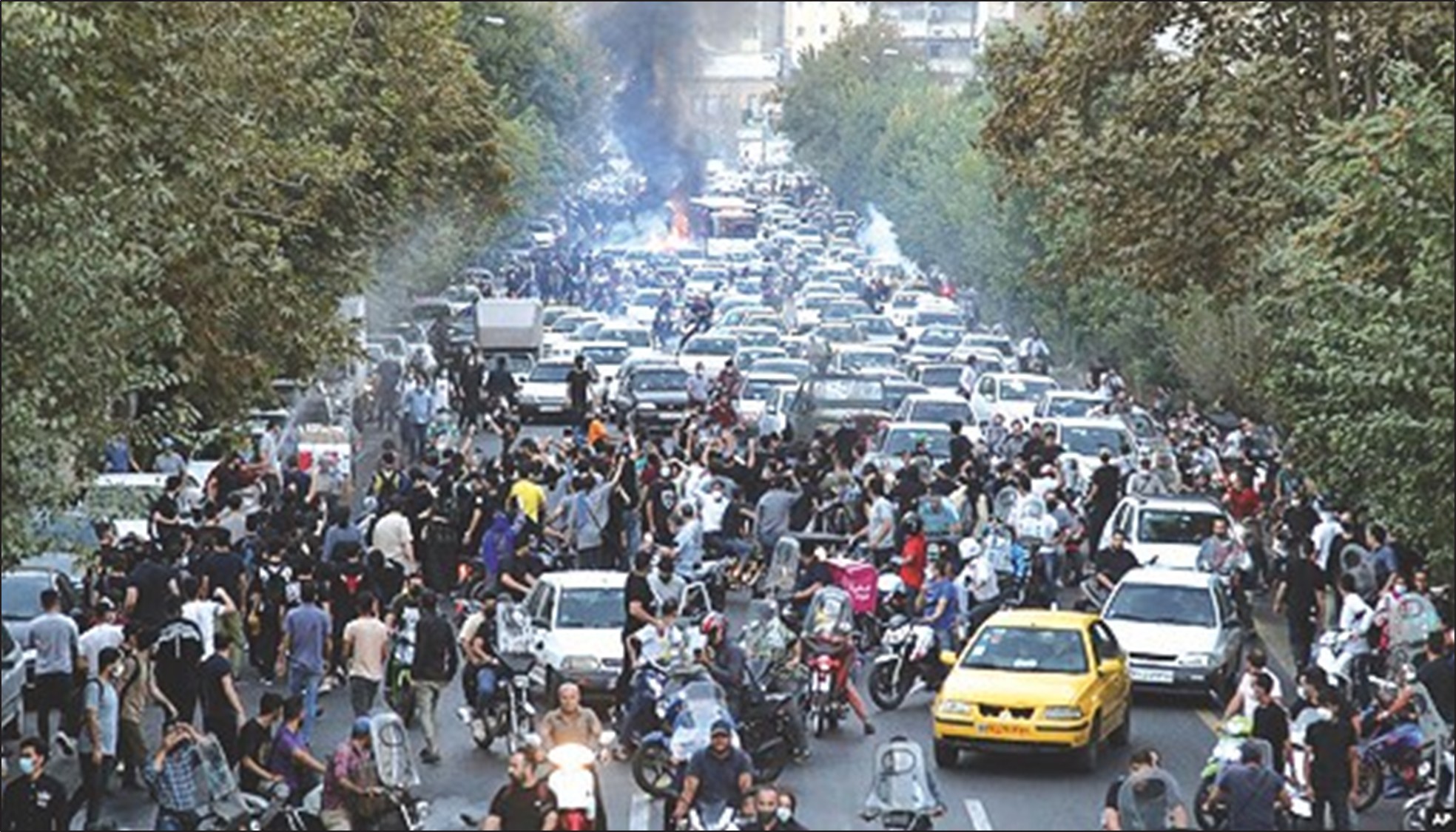December 13-2013
By Andrew J. Bacevich
What Jimmy Carter began, Barack Obama is ending. Washington is bringing down the curtain on its 30-plus-year military effort to pull the Islamic world into conformity with American interests and expectations. It’s about time.
Back in 1980, when his promulgation of the Carter Doctrine launched that effort, Carter acted with only a vague understanding of what might follow. Yet circumstance — the overthrow of the shah in Iran, the Soviet invasion of Afghanistan — compelled him to act. Or more accurately, the domestic political uproar triggered by those events compelled the president, facing a tough reelection campaign, to make a show of doing something. What ensued was the long-term militarization of U.S. policy throughout the region.
Now, without fanfare, President Obama is effectively revoking Carter’s doctrine. The U.S. military presence in the region is receding. When Obama posited in his second inaugural address that “enduring security and lasting peace do not require perpetual war,” he was not only recycling a platitude; he was also acknowledging the folly and futility of the enterprise in which U.S. forces had been engaged. Having consumed vast quantities of blood and treasure while giving Americans little to show in return, that enterprise is now ending.
Like Carter in 1980, Obama finds himself with few alternatives. At home, widespread anger, angst and mortification obliged Carter to begin girding the nation to fight for the greater Middle East. To his successors, Carter bequeathed a Pentagon preoccupied with ramping up its ability to flex its muscles anywhere from Egypt to Pakistan. The bequest proved a mixed blessing, fostering the illusion that military muscle, dexterously employed, might put things right. Today, widespread disenchantment with the resulting wars and quasi-wars prohibits Obama from starting new ones.
Successive military disappointments, not all of Obama’s making, have curbed his prerogatives as commander in chief. Rather than being the decider, he ratifies decisions effectively made elsewhere. In calling off a threatened U.S. attack on Syria, for example, the president was acknowledging what opinion polls and Congress (not to mention the British Parliament ) had already made plain: Support for any further military adventures to liberate or pacify Muslims has evaporated. Americans still profess to love the troops. But they’ve lost their appetite for war.
Two centuries ago, the Duke of Wellington remarked that “nothing except a battle lost can be half so melancholy as a battle won.” In our day, great battles are rare, while wars have become commonplace. Victory, meanwhile, seems a lost art. Nothing is half so melancholy as to compare the expectations informing recent American wars when they began — Enduring Freedom! — with the outcomes actually achieved. So in Obama’s Washington, moralism is out, and with good reason. Only nations with a comfortable surfeit of power can permit themselves the luxury of allowing moral considerations to shape basic policy.
Now, for the moment at least, realism has regained favor. In this context, that means aligning aspirations with available assets, and distinguishing between interests that are vital and those that are merely desirable. In Afghanistan, promises of enduring freedom withdrawn, realism offers “Resolute Support” as a consolation prize. When Obama’s national security adviser tells the New York Times that the president refuses to “be consumed 24/7 by one region” and intends to reassess U.S. Middle East policy “in a very critical and kind of no-holds-barred way,” that’s realism seeping through the Washingtonese.
None of this is to suggest that America’s War for the Greater Middle East has ended. Drone strikes, the Obama administration’s military signature, continue. Yet missile strikes alone, whether targeting Pakistan, Afghanistan, Yemen or Somalia, serve no larger strategic purpose. Wellington for one would have recognized Obama’s drone campaign for what it is: a rear-guard action, designed to allow the main body to withdraw.
This de-escalation is not without risks. For as America’s War for the Greater Middle East winds down, it leaves the Islamic world in worse condition — besieged by radicalism, wracked by violence, awash with anti-Americanism — than back in 1980. The list of dictators the United States has toppled or abandoned and of terrorists it has assassinated is impressively long. But any benefits accruing from these putative successes have been few. Ask Afghans. Ask Iraqis. Ask Libyans. Or ask any American who has been paying attention. (Just don’t bother asking anyone who works inside the Beltway, where the failure of the local NFL franchise to win games produces more worry than the U.S. military’s failure to win wars.)
Back in 1979, the “loss” of Iran provided much of the impetus for launching America’s War for the Greater Middle East. The shah’s overthrow had cost the United States an unsavory henchman, his place taken by radicals apparently consumed with hatred for the Great Satan.
At the time, the magnitude of the policy failure staggered Washington. It was as bad as — maybe worse than — the “loss” of China 30 years before. Of course, what had made that earlier failure so difficult to take was the presumption that China had been ours to lose in the first place. Discard that presumption, and doing business with Red China just might become a possibility. Cue Richard Nixon, a realist if there ever was one. By accepting China’s loss, he turned it to America’s advantage, at least in the short run.
So too with Iran today. The passage of time, along with more than a few miscalculations by Iran’s leadership, has tempered the Islamic republic’s ambitions. One imagines Nixon, in whatever precincts of the great beyond he inhabits, itching to offer advice: Accept the “loss” of Iran, which will never return to America’s orbit anyway, and turn it to U.S. advantage.
In their heyday, neoconservatives boasted that while anyone could go to Baghdad, real men hankered to go to Tehran. But as a venue for displaying American power, Baghdad proved a bust. In Tehran lies the possibility of finding a way out of perpetual war. Although by no means guaranteed, the basis for a deal exists: We accept the Islamic republic, they accept the regional status quo. They get survival, we get a chance to repair self-inflicted wounds. It’s the same bargain that Nixon offered Mao: Keep your revolution at home, and we’ll make our peace with it. Negotiations over Iran’s nuclear program provide the medium for achieving this larger end.
Any such deal would surely annoy Saudi Arabia and Israel, each for its own reasons committed to casting Iran as an existential threat. Obama just might choose to let them fret.
Although Americans have not yet fully digested the news, the United States no longer must defer to the Saudis. North American reserves of oil and natural gas are vastly greater than they appeared to be just a few years ago. As the prospect of something approximating energy independence beckons, the terms of the U.S.-Saudi alliance — they pump, we protect — are ripe for revision. Not so long ago, it seemed really, really important to keep the Saudi royal family happy. Far less so today.
Much the same applies to Israel. Easily the strongest power in its neighborhood and the only one possessing a nuclear arsenal, the Jewish state privileges its own security over all other considerations. It has every right to do so. What doesn’t follow is that Washington should underwrite or turn a blind eye to Israeli actions that run counter to U.S. interests, as is surely the case with continued colonization of the occupied territories. Just as Israel disregards U.S. objections to its expansion of settlements in the West Bank, the United States should refuse to allow Israeli objections to determine its policy toward Iran.
The exit from America’s misadventures in the region is through the door marked “Tehran.” Calling off the War for the Greater Middle East won’t mean that the political, social and economic problems roiling that part of the world will suddenly go away. They just won’t be problems that Uncle Sam is expected to solve. In this way, a presidency that began with optimism and hope but has proved such a letdown may yet achieve something notable.
Andrew J. Bacevich is a professor of history and international relations at Boston University and the author of “Breach of Trust: How Americans Failed Their Soldiers and Their Country.”






















